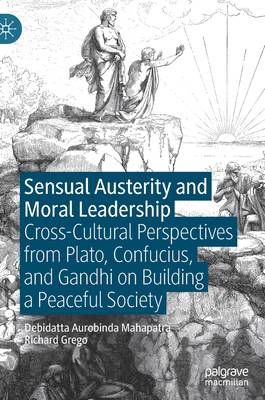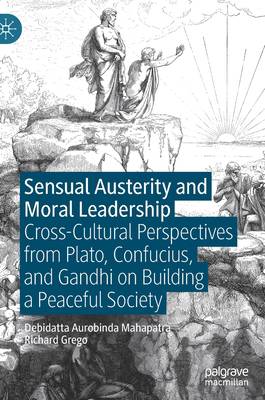
- Afhalen na 1 uur in een winkel met voorraad
- Gratis thuislevering in België vanaf € 30
- Ruim aanbod met 7 miljoen producten
- Afhalen na 1 uur in een winkel met voorraad
- Gratis thuislevering in België vanaf € 30
- Ruim aanbod met 7 miljoen producten
Sensual Austerity and Moral Leadership
Cross-Cultural Perspectives from Plato, Confucius, and Gandhi on Building a Peaceful Society
Debidatta Aurobinda Mahapatra, Richard GregoOmschrijving
This book examines the link between sensual austerity and moral leadership-a topic largely neglected in contemporary academic scholarship and public policy-by exploring the comparative cross-cultural perspectives of Plato, Confucius, and Gandhi, on this theme. Despite the diverse cultural contexts that gave rise to their respective philosophical perspectives, they shared similar views on what might constitute a universal and perennial basis for individual moral development in any harmonious political order. They all agreed that sensual austerity is necessary for the realization of a flourishing society and political culture: recognizing that control over sensual desire is both a vehicle for individual moral self-cultivation and social-political progress. Sensual austerity is thus an essential aspect of any morally governed person, institution, state, or society. The book also argues that further examination of this theme may assist scholars and policymakers in developing more peaceful and harmonious national and global communities.
Specificaties
Betrokkenen
- Auteur(s):
- Uitgeverij:
Inhoud
- Aantal bladzijden:
- 182
- Taal:
- Engels
Eigenschappen
- Productcode (EAN):
- 9783030891503
- Verschijningsdatum:
- 6/12/2021
- Uitvoering:
- Hardcover
- Formaat:
- Genaaid
- Afmetingen:
- 148 mm x 210 mm
- Gewicht:
- 408 g

Alleen bij Standaard Boekhandel
Beoordelingen
We publiceren alleen reviews die voldoen aan de voorwaarden voor reviews. Bekijk onze voorwaarden voor reviews.












